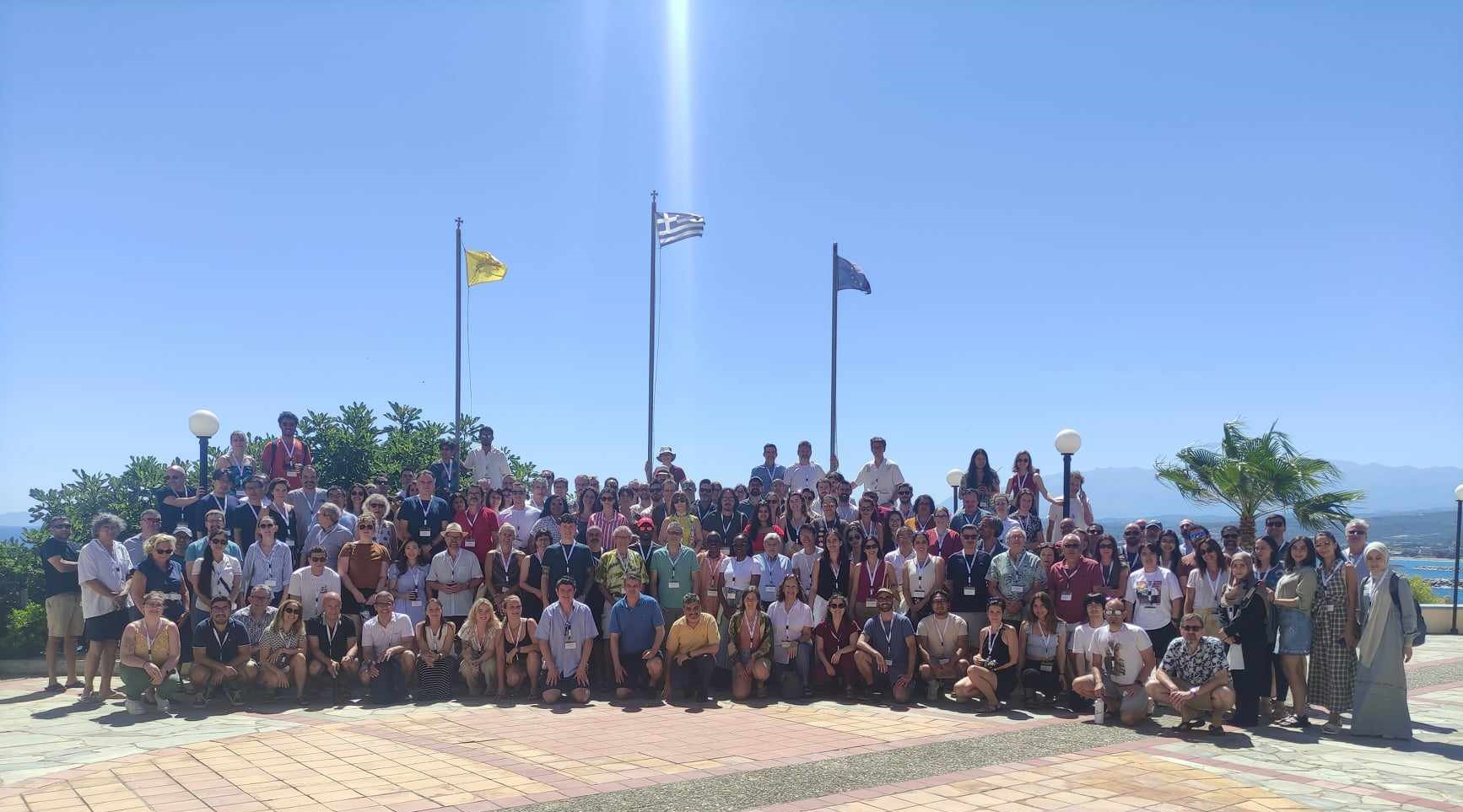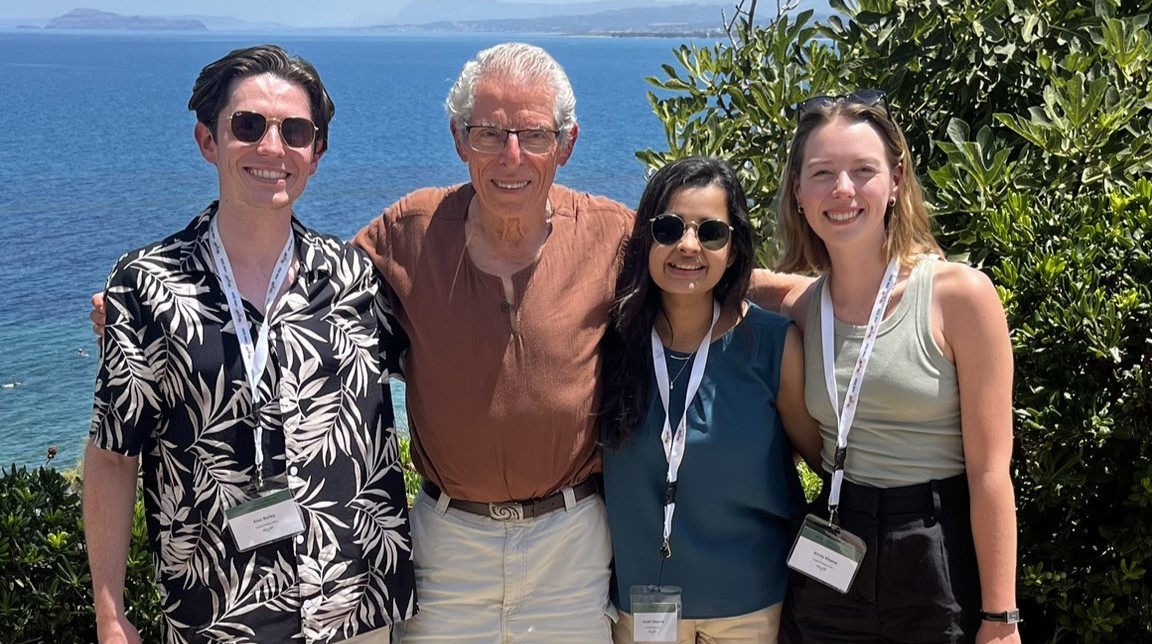This year marks the 20th anniversary of the Vector Kolymbari Meeting, an international conference that brings together members of the vector biology community including leading scientists, public health officials, and other stakeholders from around the globe.

Participants of the 2024 Vector Kolymbari Meeting in Crete, Greece. Photograph: Orthodox Academy of Crete
I had the pleasure of attending this year’s event, which as every year took place at the Orthodox Academy of Crete, in Greece. The week-long conference aimed to foster discussions on the latest research, innovations, and developments in vector biology. This year, participants exchanged knowledge on a wide range of topics, including mosquito ecology and behavior, symbionts and pathogens, microbial and genetic biocontrol, genetics, genomics and models, and vector-pathogen interactions.
One of the key highlights of the meeting for me was understanding the long and intricate pathway involved in taking research from the lab and translating it to the field. It was interesting to take a step back and see the broader picture of how research is translated into real life applications. It helped me better understand the role that several key stakeholders, including researchers, funding bodies, local communities, regulatory groups and policymakers play in taking scientific research and applying it for real life solutions.

Transmission Zero team with Prof. Marcello Jacobs-Lorena, Johns Hopkins Bloomberg School of Public Health. Photograph: Alexander Bailey
In the case of gene drive technologies for example, which are being explored as a potential tool to reduce the burden of vector-borne diseases, researchers have been considering how best to evaluate the technology in the field. As these technologies are designed to spread and persist in the target mosquito population, there are a number of considerations to take into account for the design of potential field trials, with the process requiring the input of different stakeholders, but also the use of statistical and modeling tools, as well as epidemiological and entomological data.
On a personal note, it was also exciting to network with researchers who have been attending this meeting since its inception and discussing their experience on how far the field of vector control has advanced. Senior researchers including Prof. Marcello Jacobs-Lorena, Johns Hopkins Bloomberg School of Public Health – who won the Lifetime Achievement Award for his impact in the field – emphasized the importance of leveraging newer technologies for biological control while staying grounded in fundamental biology. These conversations reminded us of the significance of our work to develop novel tools for vector control and the real-world impacts we strive to achieve.
The Vector Kolymbari Meeting is a cornerstone conference for advancing our understanding of vector-borne diseases and enhancing global efforts to control them. The insights gained from this conference underscore the need for innovative, integrated, and collaborative approaches to tackle some of the world’s most persistent public health challenges.
